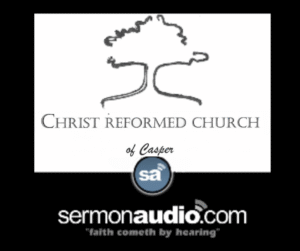LORD’S DAY 51
- What is the fifth petition?
“And forgive us our debts, as we forgive our debtors;” that is, be pleased, for the sake of Christ’s blood, not to impute to us miserable sinners our manifold transgressions, nor the evil which always clings to us;1 as we also find this witness of Your grace in us, that it is our full purpose heartily to forgive our neighbor.2
[1] Ps. 51:1–4; 143:2; 1 Jn. 2:1–2. [2] Matt. 6:14–15; Ps. 51:5–7; *Eph. 1:7.
Forgiven and Forgiving
The forgiveness of sins is a subject already well explored in the Catechism. The subject of forgiveness is fundamental to the whole structure of the Catechism, as we see the content of our Christian faith consists principally in the question of the nature of my sin and misery, how I am to be redeemed from my sin and misery, and how I am to be thankful for my redemption. The whole Christian life revolves around forgiveness- why I need forgiveness, how I am forgiven, and then how I am to live in the light of that forgiveness. Jesus’ statement here in the Lord’s Prayer particularly has relevance to the way we treat other people in our lives. Forgiveness means letting go of offenses, not holding them against others, not harboring malice or ill will toward people.
The fullness of God’s true moral character was revealed, not in His Law, but in the cross of Christ. His true glory is seen, not in the destruction of sinners, but in that while we were yet His enemies, He sent His only Son to die for our sins, so that we might be forgiven. He committed to loving us and doing good for us, blotting out our sins, at the same time that we were spitting in His eye and destroying His beautiful creation. This is to be the standard to which we ourselves should aspire.
The one statement in the model prayer that addresses the way we treat our fellow man does not tell us to make sure we uphold justice, or to convince everyone of our opinions, or to be nice to everyone around us, but rather to forgive. The Christian life cannot be one of grudge-holding, list-keeping, or wrongs-enumerating. It is instead to be a life in which we regard the failings of others with compassion and patience, even when those failings affect us personally. This gives us not just a thing to do in particular circumstances, but a spirit that should characterize all our dealings with our fellow man. This is the will of the Father, that we learn to show others the same kind of forbearance and grace that He showed to us.
Jesus in two different passages (Luke 7:40-43; Matt. 18:23-35) tells parables about two servants of a master who are forgiven, and looking at their respective attitudes toward that forgiveness. One is the parable of the two servants, one owing five hundred denarii and the other owing fifty. The other is the parable of the master who forgives his servant a huge sum, which servant then refuses to forgive his fellow servant a trivial debt.
There are many fascinating implications to both, but the central message is clear. Christians are to be eager and ready to forgive, and must not hold grudges. Our attitude toward the wrongdoing of others against us will directly reflect our awareness of how much we have ourselves been forgiven. A refusal to forgive demonstrates a lack of awareness of one’s own forgiveness. Sometimes some will say that an offender must ask forgiveness and/or make proper restitution before forgiveness is owed, but this does not reflect the spirit of our Father in heaven, who forgave us of our sins, in principle, before we even knew Him. He sent His Son to die for us and to reconcile us to Himself while we still hated Him. He forgives all of our sins, even though many of our sins are not even known by us or properly understood by us until we have been Christians for many years and often not even then. This is the spirit we are to reflect to others. This also requires trust, that we know God will do good for us even through the evil that men do.
There are other principles at play as well. Forgiveness of someone’s sins toward us or toward someone else does not preclude the exercise of civil or ecclesiastical office. The sorrowful murderer should still be executed by the state, even as his victims ought to forgive him. The unrepentant sinner should be excommunicated, even as others in the church resolve not to hold malice or anger against him. These issues should be kept separate. Additionally there are issues of personal safety- I should forgive my brother seven times a day for punching me in the nose, but there is no sin in getting my guard up after the second or third time.
Despite those qualifications, the Christian spirit will be one that is not only willing but anxious and ready to forgive the wrongs that others do him. The Catechism says we should do so “heartily.” A spirit of forgiveness is one of the prime evidences of the working of God’s grace in a man’s life.


Comments are closed, but trackbacks and pingbacks are open.